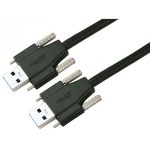
Introduction
Bluetooth technology is an integral part of our daily lives, enabling seamless wireless connectivity between devices. While many modern devices come with built-in Bluetooth capabilities, older devices or those without Bluetooth can benefit from using a Bluetooth adapter. But what exactly are Bluetooth adapters, and how can they enhance your tech experience? This article interprets Bluetooth adapters, demonstrating their benefits, key features, and essential buying tips.
Understanding Bluetooth Adapters: Definition, Functionality, and Different Types
A Bluetooth adapter, also called a Bluetooth dongle, is a small, external device designed to provide Bluetooth capability to devices that do not integrate Bluetooth technology. The fundamental function of these adapters is to provide a wireless interface to a range of non-Bluetooth and Bluetooth-enabled devices, including headphones, speakers, keyboards, PCs, laptops, and smartphones. Bluetooth dongles typically connect to the devices via a USB port or PCI Express slot and come in a USB stick form factor. In essence, Bluetooth adapters (also written as “adopters”) are a cost-effective solution for wireless connectivity, rendering the efficient transmission of data or stream audio without physical connections.
Bluetooth adaptors are available in various forms and versions, each designed for different needs and applications. Some standard types include USB Bluetooth adapters, audio Bluetooth adapters, Bluetooth adopters for PCs and laptops, and Bluetooth adapters for cars, headphones, and TVs. Different versions of Bluetooth adopters include Bluetooth 4.0, Bluetooth 4.2, Bluetooth 5.0 and 5.1, and the latest Bluetooth 5.2.


The Significance of Bluetooth Adapters in Wireless Communications
Wireless adapters are crucial in communications, enabling seamless connectivity and data transmission between various devices over short distances. They allow effortless pairing with wireless headphones, speakers, keyboards, mice, and even mobile phones. Bluetooth dongles have also significantly enhanced user experience by preventing the clutter of wires and providing greater flexibility. In addition, by leveraging Bluetooth technology, adapters enhance the usability of older equipment and offer a cost-effective means to meet the growing demand for wireless connectivity in an increasingly interconnected world.
How Do Bluetooth Adapters Work? A Brief Overview of Their Operating Principle
Bluetooth adapters operate on a straightforward principle. They plug into a device, commonly through a USB port, and serve as a bridge to establish wireless connections. These wireless adaptors utilise Bluetooth technology to pair with nearby devices, creating a secure link that enables data transfer or audio streaming. Once paired, data can be exchanged wirelessly over a secure connection.
Unparalleled Benefits of Using Bluetooth Adapters
Bluetooth adapters provide numerous benefits in a technology-driven world where convenience and accessibility are essential. Some key advantages include:
- Providing a Clutter-Free Space
Bluetooth dongles eliminate the need for physical cables, making a workspace cleaner and reducing cable clutter. This is particularly beneficial for office setups and gaming stations.
- Enhanced Connectivity and Compatibility
With a Bluetooth adapter, you can connect various devices to your computer, even if it doesn’t have built-in Bluetooth functionality. This opens up numerous possibilities for seamless connectivity.
- Faster Data Transfer and Streaming
Modern Bluetooth adopters support high-speed data transfers, enabling you to send large files and stream audio without lag, thanks to advancements in Bluetooth standards.
- Improved Flexibility and Portability
Bluetooth dongles are portable, compact, and typically plug-and-play devices. These flexible tools are ideal for those who frequently switch between devices or move between workspaces.
- Power Efficiency
Most adapters are designed with low-energy technology, which minimises battery consumption on devices. This is particularly beneficial for devices like laptops and mobile devices.
Key Features of Bluetooth Adapters You Need to Know
Bluetooth adapters are handy tools for adding wireless connectivity to devices that lack built-in Bluetooth. These devices come with standout features, such as:
- Wireless Connectivity: Bluetooth adapters enable wireless communication between devices, enhancing convenience and productivity.
- Coverage Range: Typical range is 10-30 meters, depending on the Bluetooth version and adapter type.
- Data Transfer: They support varied data transfer, including audio, files, and device pairing information.
- Bluetooth Versions: Compatibility with various Bluetooth versions (e.g., 2.1, 4.0, 5.0) for different devices and features.
- Low Energy (BLE): Support for energy-efficient Bluetooth Low Energy technology for devices like smartwatches and fitness trackers.
- Plug-and-Play Functionality: Easy setup with minimal driver installation required.
- Compact Design: Small and portable, often USB-based for easy connection.
- Multiple Device Pairing: Ability to connect to multiple devices simultaneously.
- Security Features: Encryption for secure data transmission.
- LED Indicator: Bluetooth adopters often feature an LED indicator that provides visual feedback about the device’s status, which is helpful for troubleshooting connection issues.
Buying Tips: How to Choose the Suitable Bluetooth Adapter
Choosing a suitable Bluetooth adapter can make a significant difference in connectivity, speed, and convenience. When purchasing, consider the following factors and tips:
- Define Your Purpose: Determine what you’ll use the adapter for. If it’s mainly for audio streaming, look for one with high-quality codec support. For general peripheral connections, a standard Bluetooth 4.0 or 5.0 adapter should suffice.
- Check for Drivers and Installation: Look for adapters that come with driver support, especially if your operating system requires specific drivers for compatibility. Plug-and-play adapters are ideal for those who prefer a straightforward setup.
- Evaluate the Range Requirement: If you need an adapter to cover a large area, consider Bluetooth 5.0 or 5.1 for extended range. However, for close-range use, Bluetooth 4.0 or 4.2 should suffice.
- Look for Customer Reviews: Check customer reviews to gauge the adapter’s reliability and performance, particularly regarding range, connectivity stability, and driver support.
- Consider the Warranty and Brand Reputation: Reliable brands usually offer warranties, which can be beneficial if you encounter issues. Established brands provide better build quality and support.
- Decide on the Form Factor: Some adapters protrude from the USB port, while others are almost flush with the device. Choose a form factor that suits your device’s usage; for laptops, a low-profile adapter is typically more convenient.

Final Thoughts: Investing in a Quality Bluetooth Adapter
Bluetooth adapters are simple yet powerful tools for enhancing device connectivity and functionality, especially for older hardware. By understanding the benefits and features and choosing the right version, you can elevate your tech setup for seamless, wireless interactions across devices. Investing in a quality Bluetooth adapter can be a small change with a big impact, offering convenience and adaptability in today’s connected world.





















